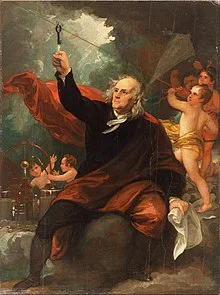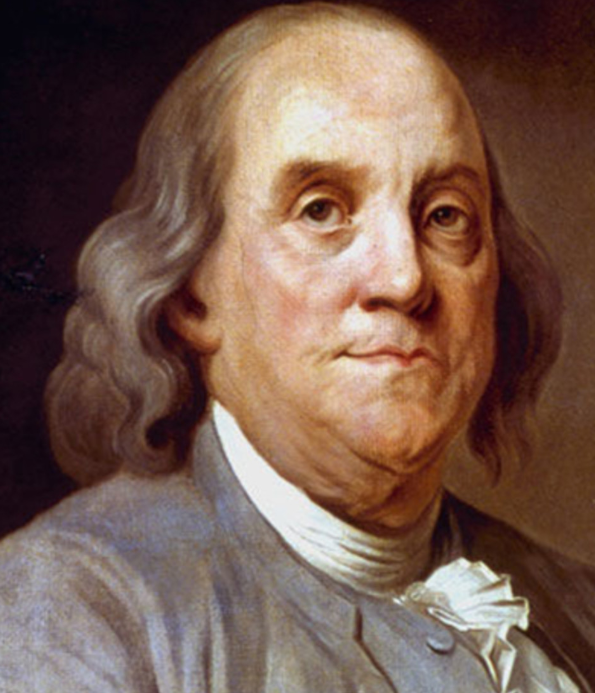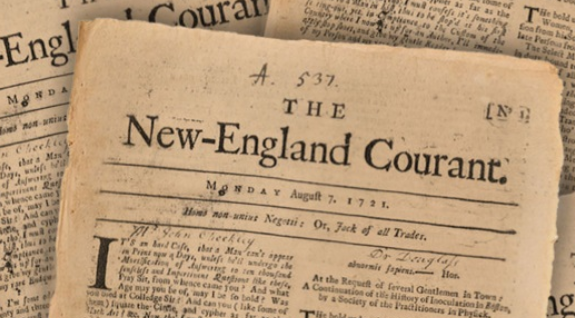Poor Richard's Hoax - Making Ben Franklin Famous
Today we read about a public battle which took place 40 years before the American Revolution.
Why, you might ask, would this show up on a site specifically about the American Founding?
Well, it just so happens, this strange, hilarious story launched the career of a young Benjamin Franklin. His rise to fame, fortune and respect in the aftermath of this unbelievable tail made him the man who we all know as an indispensable Founder.
Published 7/20/19 - Updated 11/1/21
Almanac Wars
In the late 1600’s, a man by the name of Daniel Leeds started the first almanac in the American Colonies.
By the 1730’s, two of his sons had inherited the business and, as brothers do, began writing competing almanacs. Around this time several other authors had jumped into the field and, though it became the favorite type of publication to read by the general public, the market became crowded.
The people didn’t know who to trust with these pamphlets full of wisdom, astrological predictions and humor.
That’s when a 26-year-old rookie printer joined the fray.
The young man’s name?
Poor Richard Saunders
The colonial consumers who purchased Franklin’s almanac did not realize he was such a young man.
This was because Benjamin published under a different name...Richard Saunders. Famously, the text went by the moniker Poor Richard’s Almanac.
Franklin’s almanac would go on to be published annually for 25 years. It is well known today by even the most casual American Revolution Historian.
What is not quite so well known is how Benjamin got his almanac off to such a hot start.
The answer is a bit shocking.
He killed off his competition.
Killing Off the Competition
OK, so Benny Franks didn’t actually murder anyone.
Instead, he used one of the more common subjects covered in almanacs of the day...astrology.
At the time, the most popular almanac author in the colonies was Titan Leeds, one of the sons of the aforementioned Daniel Leeds.
So, in his very first almanac, Franklin decided to make an astrological prediction regarding Titan Leeds. Poor Richard announced to the world the exact date and time Leeds would die!
It just so happens that in the second issue, Poor Richard announced he was right! According to Franklin, when Leeds had died earlier that year, it was the exact day and time Benjamin said it would be!
There was just one problem.
Titan Leeds was still alive.
Success
Ben Franklin’s announcement that he predicted Titan Leeds’ death was a well crafted hoax.
And it worked.
Poor Richard’s Almanac launched to fame throughout the colonies.
People loved it.
Well, except one person.
Titan Leeds’ Reaction
You can imagine Leeds’ astonishment to read about his death in the papers.
Imagine. You’ve spent the better part of twenty years establishing yourself as a trusted resource for the people and some punk kid comes along and tells everyone you’re dead.
Titan did what any self-respecting writer might do...he announced he was still alive.
Of course, this kind of thing doesn’t matter to a person like Franklin.
Benjamin doubled down on his hoax and declared the ‘new’ Titan Leeds an impostor.
Take that P.T. Barnum.
Franklin wasn’t the only Founder to play tricks in public.
Check out these fun Founders:
Washington Irving Plays a Trick on New York
John Bill Ricketts - The Circus Comes to Town
Ben Franklin has dozens of biographies.
‘The First American’ is one of my personal favorites.
If you’d like a copy you can get one through the Amazon affiliate link below (you’ll support this site, but don’t worry, Amazon pays me while your price stays the same).
Want to get fun American Revolution articles straight to your inbox every morning?
Subscribe to my email list here.
You can also support this site on Patreon by clicking here.
Thanks for your support!






